
Mondays are sacred in the restaurant world.
But in the early days of The Owl House, which turns fifteen this year, chef Brian Van Etten remembers spending Mondays—typically a day off—darting all over the quirky, converted Victorian house in Wadsworth Square, getting prep work done.
One minute, he’d be upstairs, moving things around in the second-floor dining room. The next, he’d be down in the basement wrestling with boxes of ingredients. Numerous times, he’d be chopping away in the glorified closet-of-a-kitchen, only to glimpse the beloved smoker engulfed in flames. So much for that batch of smoked tofu.
“We had no business opening a restaurant,” Van Etten admits. He and his friends Jeff Ching and Andrea Parros—founding partners of The Owl House—were in their twenties at the time, fresh off years of living and working in Boston together, with little clue about the challenges of running a place of their own.
“Still, we figured it out on the fly,” he adds. “Looking back on the size and limitations of the kitchen, I’m still in awe of the variety of food we were able to produce.”
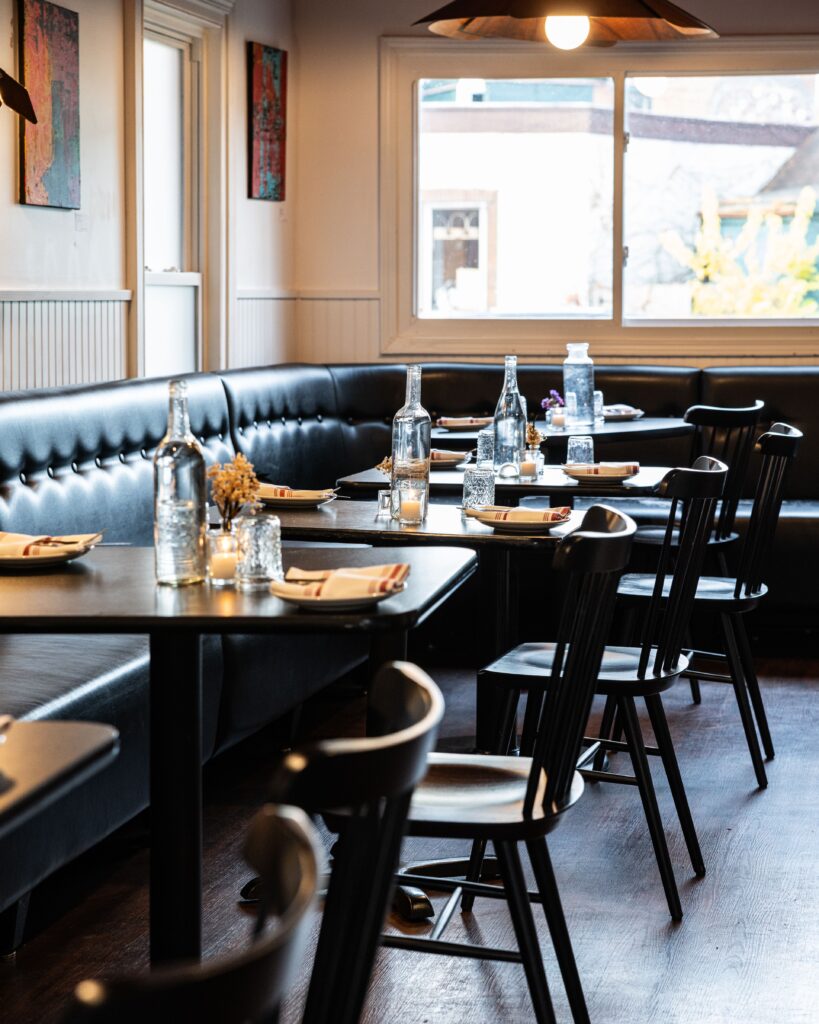
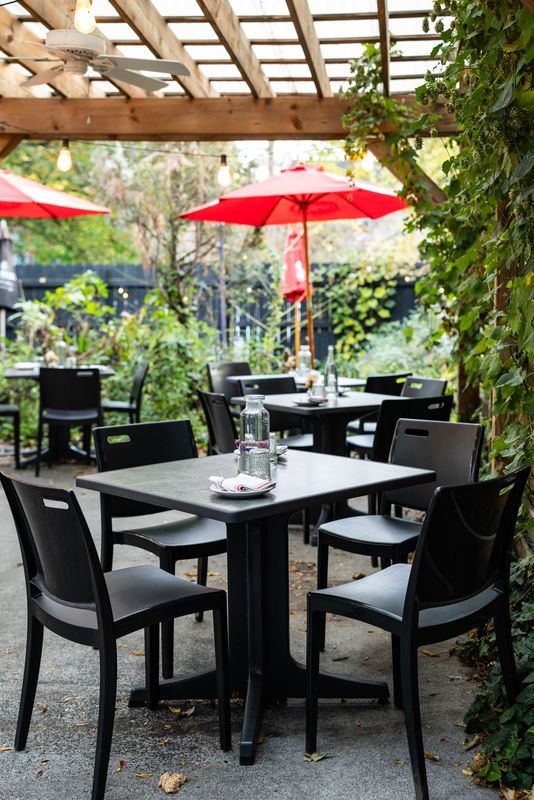
The eatery was one of the first places in town to offer a truly mixed menu, serving an equal balance of vegetarian and meat dishes. Before that, you’d be hard-pressed to find even one vegetarian dish in most restaurants. It was a bold, progressive move for the local dining scene that laid the groundwork for many more to follow.
“Andrea was always pushing the envelope of food trends,” Van Etten recalls. “She wanted everyone to have an accessible menu available to them regardless of their dietary needs.” Parros is vegan and had recently been diagnosed with celiac disease, so gluten-free options were a priority, even when it felt niche.
Ching and Van Etten’s punk roots also played a role. They’d gone through phases of vegetarianism themselves and had tons of friends who didn’t eat meat.
“When you’re out touring with bands, one of the hardest things to do is to find a place to eat that would satisfy everyone,” Van Etten says. “We wanted to be one of those spaces that did.”
From the start, The Owl House was all about supporting local—sourcing produce from nearby farms, serving up locally roasted coffee, and offering a menu as eclectic as it was fresh, including made-from-scratch desserts. They even helped put the city’s craft cocktail scene on the map alongside spots like Good Luck and Lento.
That ethos remains today, even as its founding members have moved on to new ventures. Parros opened The Red Fern in 2013, while Ching and Van Etten went on to create The Playhouse // Swillburger, Pizza Wizard, and Strangebird.
It’s worth mentioning that plant-based magazine VegNews, among many others, have called Rochester a destination for vegan eating. Many of those spots got their start in the walls of this funky Victorian.
“Owl showed us that anything is doable,” Van Etten says. “[I] and many others realized that where there’s a will, somehow there’s a way.”

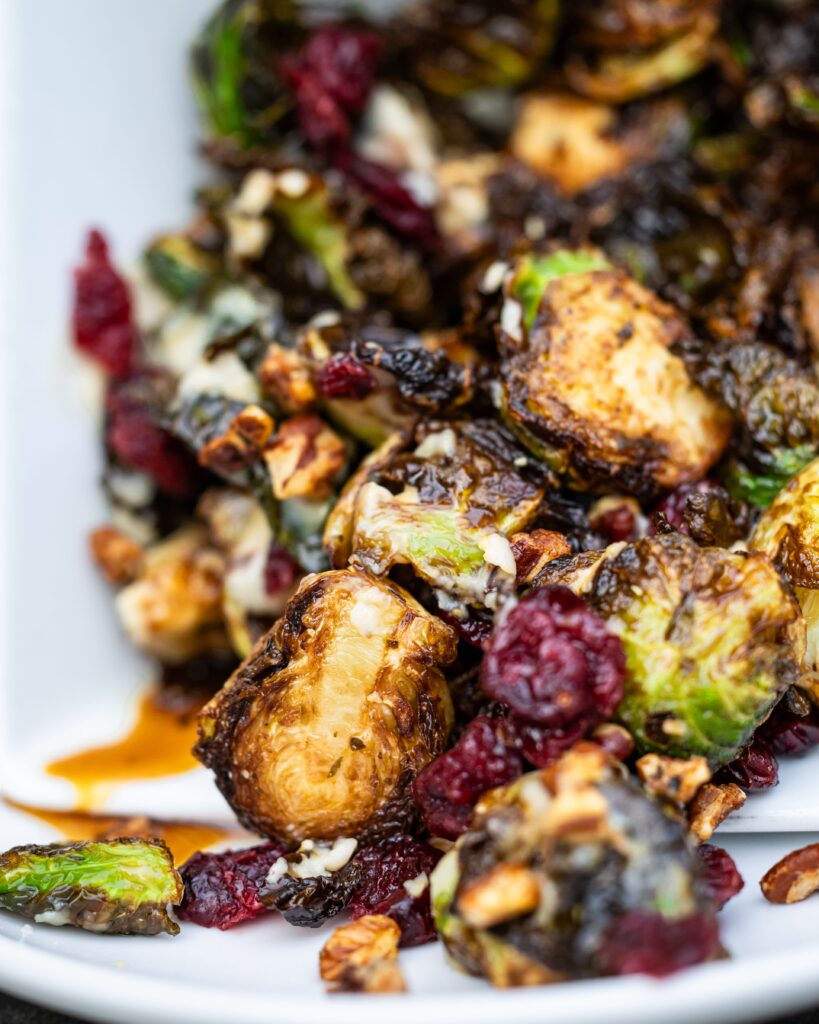
Leigh Ann Kaminek, the current executive chef and general manager, fully embraces the pioneering spirit that has always defined The Owl House.
She credits Gabrielle Hamilton, the legendary Manhattan chef, as one of her key influences.
“We owe so much to our community and the earth,” Kaminek says. “Figuring out how to make the most out of every ingredient really gets my brain going— using every part of a product and staying seasonal.”
Over the last six years, Kaminek has nudged the restaurant toward fine dining, with small plates, larger entrées, and an upscale weekend brunch. One dish that’s become a go-to is the tofu dinner ($18)—a crispy “filet” of marinated tofu that gets a fresh update every season. Last summer, it came swimming in tarragon and saffron butter, with spinach orzo and charred lemon.
The same dish can also be served with salmon ($27), but whether you eat meat or not, either option is delicious.
Nate Stahl, executive chef at Strangebird and a former employee of The Owl House, admires Kaminek’s commitment to crafting a menu that is primarily vegetable-driven.
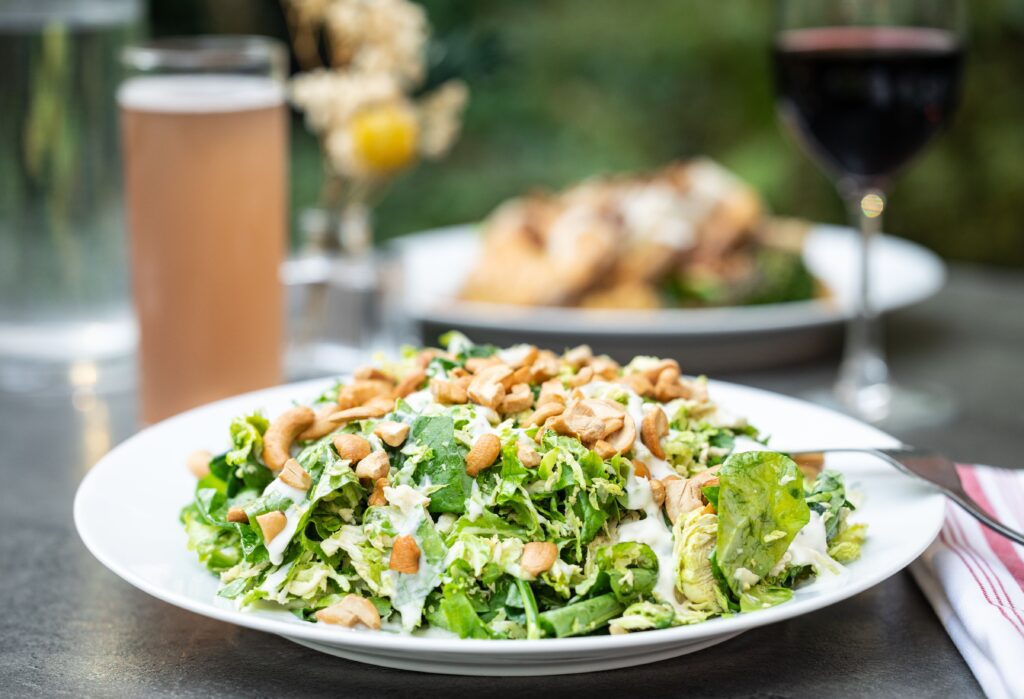
“Leigh Ann has always done a good job of letting local produce be the star,” he says. “A lot of local places use processed soy products as the center of the plate.”
While the menu proudly features local favorite Soy Boy—“the best tofu,” as Kaminek puts it—she ensures there’s always a non-soy protein option, like balsamic-marinated portobello mushroom ($18). Almost everything on the menu can accommodate what Kaminek calls the “big seven” allergies and is substituted with a comparable option.
“Staying informed about that is a passion of mine,” Kaminek says. “If we’re going to run a business, it’s essential to be in tune with not just what’s seasonal but what’s going to be delicious and what our team can execute. Every season, our team gets better.”
That means taking the small plates, like strawberry tomato bruschetta ($11) or cashew kale brussels sprout salad, dubbed the saladboy ($11), just as seriously as the entrées.
“Their soups always impress me,” says Séamus Spencer, a longtime customer who now lives in West Virginia. Spencer and their partner used to go for their anniversary every year, and now that they’ve moved, they try to make the trip back at least once a year. “It’s to the point where I would get it as an appetizer and take notes until I could make my own soups come close.”
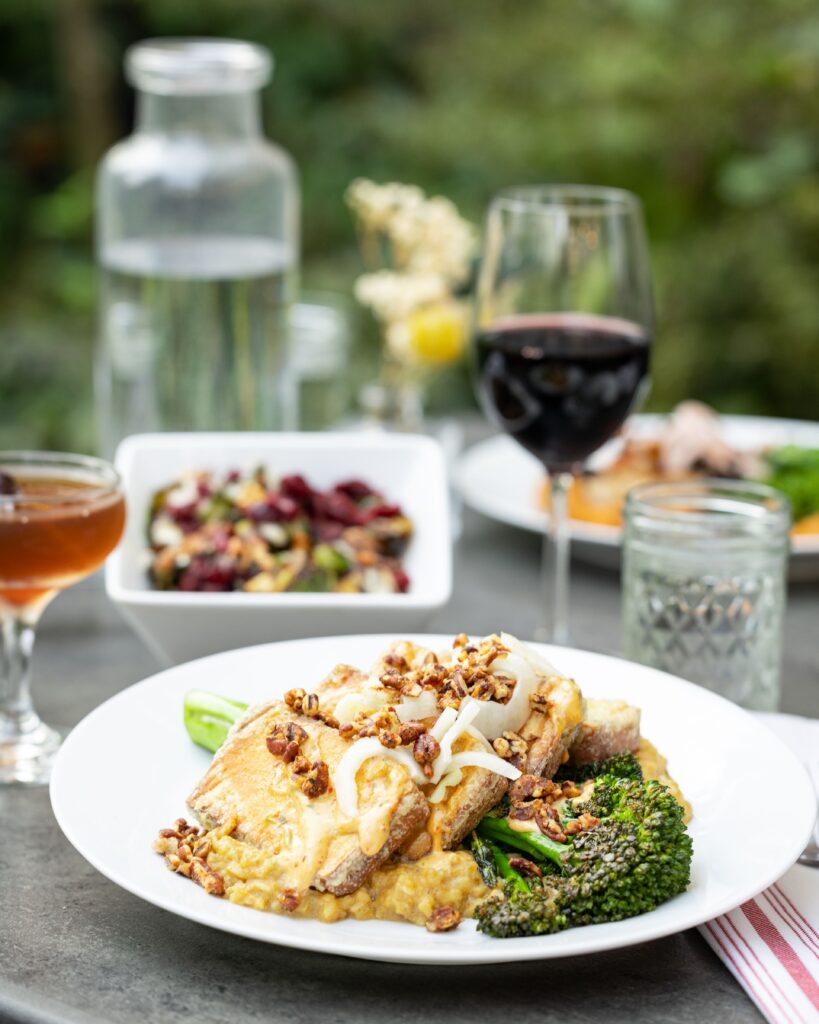
Kaminek attributes her success to the strong support from her peers in the industry. Rory Van Grol, the owner of Ugly Duck Coffee and another former employee, once remarked that his coffee must still taste great five hours later—often a necessity on busy days. Inspired by this, Kaminek has challenged her staff to ensure that takeout leftovers are just as delicious as the dishes served fresh in the restaurant.
She frequently tests new creations and seeks advice from Nate Stahl, whom she affectionately refers to as “like my big brother.” Stahl echoes this sentiment: “Without my time at The Owl House, I wouldn’t be where I am today. It’s a fantastic place for anyone to start their journey in the Rochester restaurant scene.”
Here, the notion of family runs deep. “We just had an employee retire who’s been with us for twelve years,” Kaminek reflects. “We come in, we know you, we’re so excited to see you.”
Fifteen years later, the establishment’s influence extends beyond its quirky Victorian walls. It’s visible in its alumni’s thriving restaurants, the inclusive menus across the city, and the expectations of local diners.
But perhaps its greatest legacy is the community it’s fostered—of chefs, farmers, and food lovers alike. As Parros puts it, “We all had these incredibly formative experiences at The Owl House. It allowed us to grow and expand other ideas and concepts in the city, places that are so well loved and established here now.”
Nurturing talent, championing inclusivity, and elevating local cuisine hasn’t just fed our city—it’s helped shape the very fabric of our culinary identity.
The Owl House
75 Marshall St., Rochester, NY 14607
(585) 360-2920
owlhouserochester.com
This article originally appeared in the January/February 2025 issue of (585).
Read more: How to make vegan buffalo cauliflower wings that rival the real thing
Views: 282




